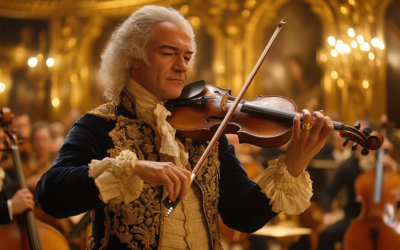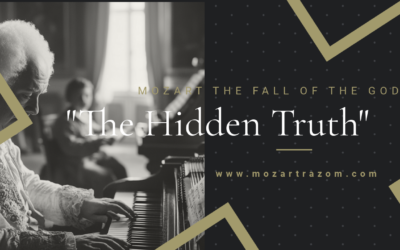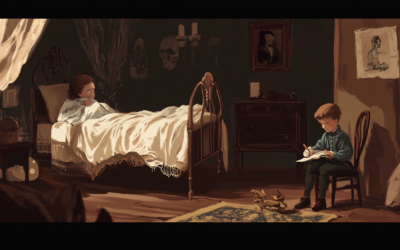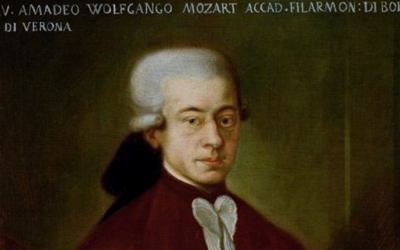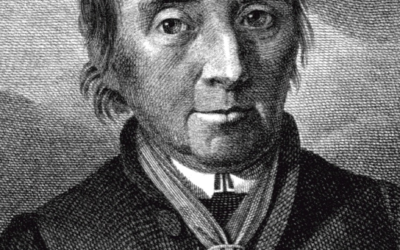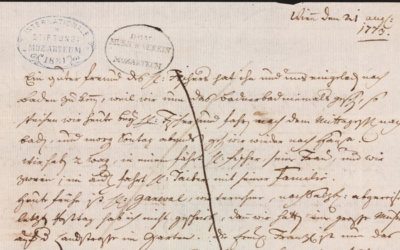A Revolutionary Encounter at Cremona Musica
Presenting Mozart: The Fall of the Gods at the World’s Most Prestigious Music Fair
We’re honored to have taken part in the remarkable atmosphere of Cremona Musica, a festival renowned worldwide for bringing together the finest names in music and lutherie. It’s here, at this grand fair, that we presented our latest work, Mozart: The Fall of the Gods. This book is the culmination of our research into Mozart’s true legacy, seeking to unravel the myth and bring clarity to his legacy with documented sources and in-depth analysis.
Mozart: The Fall of the Gods
This book offers a fresh and critical look at the life of Wolfgang Amadeus Mozart, challenging the myths that have surrounded him for centuries. We strip away the romanticised image of the “natural genius” and delve into the contradictions within Mozart’s extensive biographies. Backed by nearly 2,000 meticulously sourced citations, this work invites readers to explore a deeper, more complex understanding of Mozart. Perfect for those who wish to question the traditional narrative, this biography is a must-read for serious music lovers and historians.
"Cremona Musica: a global fairground where excellence meets exchange, and every voice is invited to the conversation."
@MozartrazoM
We’re honored to have taken part in the remarkable atmosphere of Cremona Musica, the world’s leading music fair and a global hub for musicians, luthiers, and music enthusiasts. Recognized as the premier international gathering for fine instruments and music professionals, Cremona Musica represents the pinnacle of musical excellence and innovation. To be invited to present at this prestigious event is a source of great pride for us, and we are grateful for the opportunity.
Our presentation of Mozart: The Fall of the Gods – Part Two was met with an exceptional response. Engaging with a diverse audience, we shared insights from our work and encouraged open discussion. This fair offers more than an exhibition space; it’s a unique arena for the respectful exchange of ideas and in-depth dialogue that pushes the boundaries of conventional musical scholarship.

Our second conference at Cremona Musica focused on the fascinating legacy of the Neapolitan school, specifically the study of partimenti, a unique pedagogical tool that influenced generations of composers. Alongside internationally acclaimed guitarist and soloist Maestro Edoardo Catemario, we explored the rich heritage of these musical exercises, illustrating their importance with select examples. The Maestro’s expertise brought new depth to our discussion, capturing the enduring relevance of the Neapolitan method and its influence on classical music.
Cremona Musica’s world-renowned reputation is built not only on its unmatched gathering of instruments and exhibitors but also on its high-quality events, featuring over two hundred performances, conferences, and masterclasses each year. For us, this fair was not merely a showcase but a milestone moment of dialogue and mutual enrichment. We extend our gratitude to the organizers, our fellow presenters, and the vibrant audience that made this year’s event truly memorable.
You May Also Like
The Violin Concertos: Mozart’s Borrowed Genius
Mozart’s violin concertos are often celebrated as masterpieces, but how much of the music is truly his? This article delves into the complexities behind the compositions and challenges the authenticity of some of his most famous works, revealing a story of influence, imitation, and misattribution.
#2 The Hidden Truth of Mozart’s Education
In this video, we uncover the hidden truth behind Wolfgang Amadeus Mozart’s early education and challenge the long-held belief in his effortless genius. While history often celebrates Mozart as a child prodigy, effortlessly composing music from a young age, the reality is far more complex.
The London Notebook
The London Notebook exposes the limitations of young Mozart’s compositional skills and questions the myth of his early genius. His simplistic pieces, fraught with errors, reveal a child still grappling with fundamental musical concepts.
The Mozart Question
In this revealing interview, we delve into the lesser-known aspects of Wolfgang Amadeus Mozart’s life, challenging the long-standing myth of his genius. A Swedish journalist explores how Mozart’s legacy has been shaped and manipulated over time, shedding light on the crucial role played by his father, Leopold, in crafting the career of the famed composer.
Georg Nissen and the Missing Notebooks
After Mozart's death, his widow, Constanze, found a steadfast partner in Georg Nikolaus von Nissen, a Danish diplomat who dedicated his life to preserving the composer's legacy. Nissen not only compiled an extensive biography of Mozart but also uncovered and...
Letters Under Surveillance
In a world without privacy, Leopold Mozart’s letters were carefully crafted not just to inform but to manipulate perceptions. His correspondence reveals a calculated effort to elevate his family’s status while avoiding any mention of failure or controversy.


